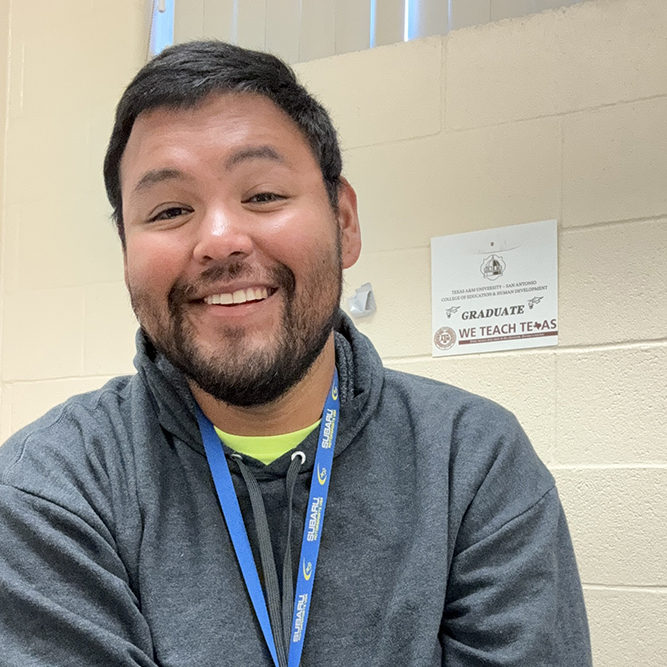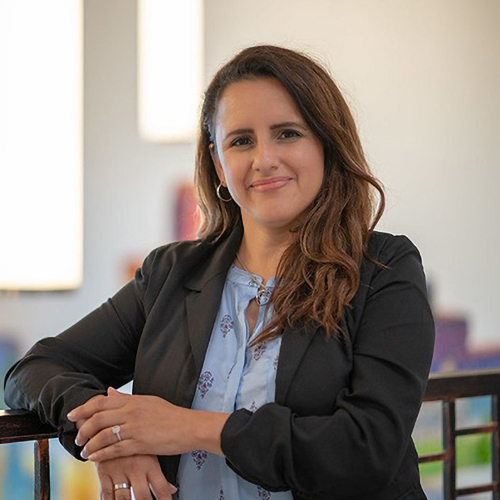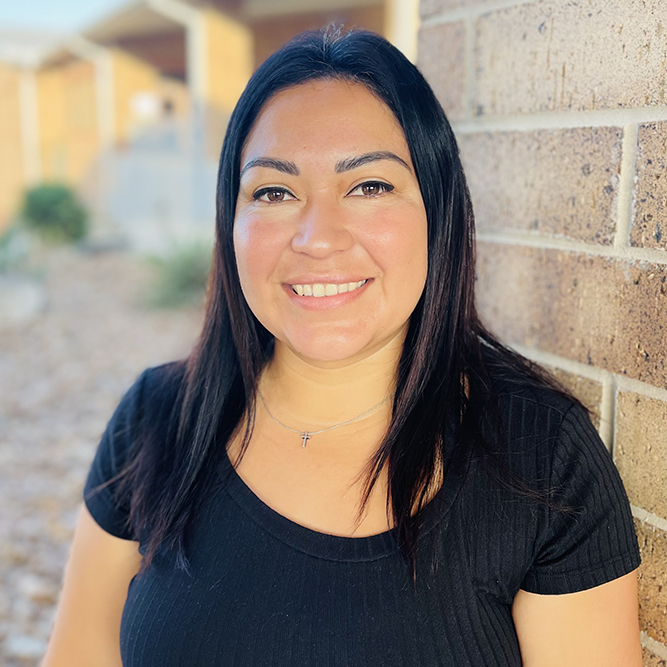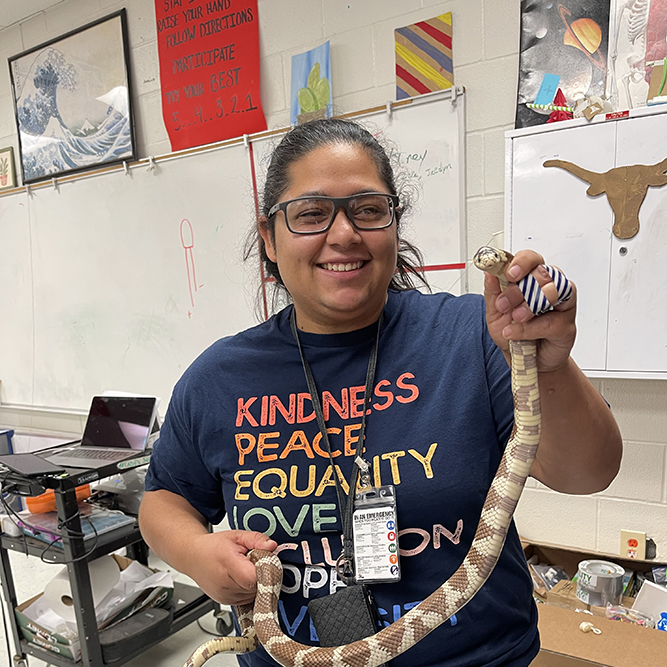Graduates are making an impact at the local, state and federal levels
Joe Sifuentes started his career at Northside ISD as a youth leader at an after-school program. He was a natural, especially when it came to working with kids with behavioral and developmental challenges. He soon transitioned to a special education instructional assistant, working with middle school students on the autism spectrum.
“We had good days, and we had bad days,” he said. “But I fell in love with the job. I loved supporting the students, seeing them progress, and achieving their goals.”

That early experience at Northside ISD set Sifuentes on a path that ultimately led him to A&M-San Antonio, where he earned a Master of Education in Special Education with a concentration in Instructional Specialist, graduating in 2023.
Part of the College of Education and Human Development, the M.Ed. in Special Education prepares graduates to work with individuals with disabilities from early childhood to adulthood. Students can follow one of three concentrations, including Instructional Specialist, Autism/Emotional Behavior Disorders, and Assessment (Educational Diagnostician).
The program has become increasingly important as disorders like autism and ADHD have skyrocketed. Approximately 1 in 36 children has been identified with autism spectrum disorder, compared to 1 in 125 in 2004, according to the CDC, while an estimated 7 million U.S. children have been diagnosed with ADHD, compared to 6 million in 2016.
“Graduates of this program are in high demand and leaders in the fields of behavior, inclusion, and assessment,” said Dr. Esther Garza, chair of the College of Education and Human Development. “There are many different ways they can impact the community at the local, state or federal level, including with nonprofits, hospitals, and schools. There’s a wide range of opportunities.”

For Sifuentes, his early experience at Northside ISD convinced him he was on the right path. During much of his time at the University, he worked at Promesa Academy Charter School as a special education coordinator, gaining additional experience.
“My time at A&M-San Antonio was really amazing,” he said. “It was affordable, the schedule was flexible, and I had professors who really pushed me to become the educator that I am today. By the time I obtained my master’s, I was ready to venture out and see what I could accomplish in the special education field.”
Sifuentes ultimately returned to Northside ISD, where he’s a special education teacher, working with 7th graders. He also serves as a football and golf coach at the school. Moreover, he works part-time as an adjunct faculty member at Northwest Vista College.
“Special education is very near and dear to my heart,” he said. “I love helping students follow their goals and succeed. Being able to share my knowledge in middle school and higher education settings is very special to me. While it took a while, I feel like I'm at the place where I’m supposed to be, where I’m truly needed.”
Blanca Diaz is another A&M-San Antonio alumnus making an impact in the community and helping students with special needs. After earning a bachelor’s degree at A&M-San Antonio, she worked as a bilingual teacher with the La Vernia ISD, which she said was an eye-opening experience.
“I saw a lot of kids struggling in the classroom, and it was very hard to get them the evaluations they needed,” she said. “There just weren’t enough bilingual evaluators.”

This inspired Diaz to return to A&M-San Antonio, where she graduated in 2020 with a Special Education Master’s degree, with a focus on Assessment (Educational Diagnostician).
She is now a diagnostician at Floresville ISD, helping evaluate everyone from grade school students to high schoolers. Diaz said she diagnoses nearly 100 students per year, using data from school evaluations, research-based Star Assessments, along with input from parents and doctors. Autism, ADHD and dyslexia are the most common disorders she encounters.
As part of this process, she gives her evaluations to campus facilitators, who help connect the students with additional support.
“I loved my time at the University,” she said. “It felt like a small, tight-knit community, and the professors were very welcoming, understandable, and approachable. And now I feel like I get to truly make a difference.”
Klarisa Carranza is also making a difference. She graduated from the University in 2019 with a Master’s in Special Education, with a focus on Autism/Emotional Behavior Disorders. As a functional life skills teacher at Uvalde CISD, Carranza works with students who face a range of disabilities and emotional behavior disorders.
“I teach students things like how to use a fork and spoon, how to bathe and dress themselves, and how to manage basic daily tasks that help them gain independence,” she explained.

“I have a cousin with an intellectual disability, and growing up with him, I saw the struggles he and my aunt went through,” she said. “It wasn’t something out of the ordinary for me. It's just something I always took an interest in.”
Uvalde, like so many other school districts, is in dire need of educators with expertise in special education. Over the last five years, Carranza has filled multiple roles, including co-teaching fifth and sixth grades, before taking on her current position working with younger students. Each role has given her invaluable experience in addressing a wide range of student needs.
Carranza’s future goals include continuing to support Uvalde students and eventually stepping into a leadership role. “I’d love to become a director of special education here in Uvalde or even return to San Antonio to teach,” she said. “I love what I do. It's never a dull moment. You learn from the kids as well, because sometimes they surprise you how much they actually know.”